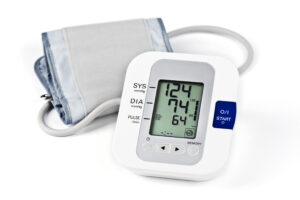It is important to identify and address remedial causes of agitation; please refer to the section on early management issues.
Pre-existing mental disorders and/or the psychiatric consequences of brain injury (e.g. depression, anxiety, adjustment disorder) may cause the person to present with agitation, distress and/or challenging behaviour. Contributory factors should be identified and appropriately treated/managed.
Propranolol may be helpful in the management of persistent problems of agitation and aggression following brain injury.  This should be commenced at doses of 20 mg twice daily, increasing gradually up to 80 mg twice daily, as tolerated. Use caution when titrating the dose and monitor pulse and blood pressure carefully. Please be aware that Propranolol:
This should be commenced at doses of 20 mg twice daily, increasing gradually up to 80 mg twice daily, as tolerated. Use caution when titrating the dose and monitor pulse and blood pressure carefully. Please be aware that Propranolol:
- May cause bradycardia and hypotension.
- May cause bronchospasm in those with asthma.
- Should not be used in those with unstable or severe heart disease, asthma or chronic obstructive airways disease.
- May prevent the symptoms of hypoglycaemia occurring and therefore should be avoided in those with insulin dependent diabetes mellitus or those on oral hypoglycaemic medication.
 Please refer to the British National Formulary (BNF) for contraindications and adverse effects before prescribing.
Please refer to the British National Formulary (BNF) for contraindications and adverse effects before prescribing.
Trazodone may be helpful, starting at 50 mg daily and gradually increasing up to a maximum of 300 mg daily in divided doses.
The use of antipsychotic medication in the management of challenging behaviour should only be considered where Propranolol, Trazodone and behavioural interventions have been ineffective. Antipsychotics such as Olanzapine, Quetiapine or Risperidone may be considered. These drugs should be used with extreme caution due to their potential side effects. They may cause prolongation of the QTc interval on ECG, with risk of fatal ventricular tachyarrythmias. ECG monitoring is required. Please be aware that antipsychotic medication may impair cognitive function and increase agitation and confusion. If a trial of an antipsychotic is ineffective, it should be withdrawn because risks (extrapyramidal and metabolic side effects) may outweigh benefits.
Regular use of benzodiazepines should be avoided where possible in the longer term management of agitation following brain injury because they may impair cognitive functioning and may paradoxically exacerbate problems with disinhibition and agitation.
Please refer to the section detailing Potential Harmful Side Effects of Antipsychotic Medication and Benzodiazepines.